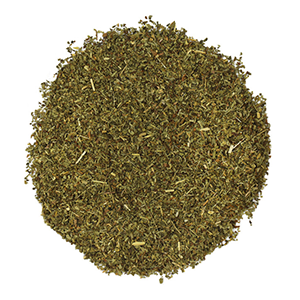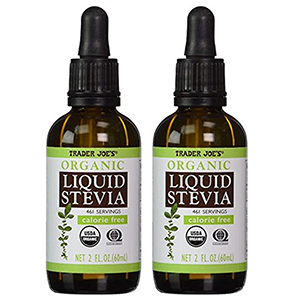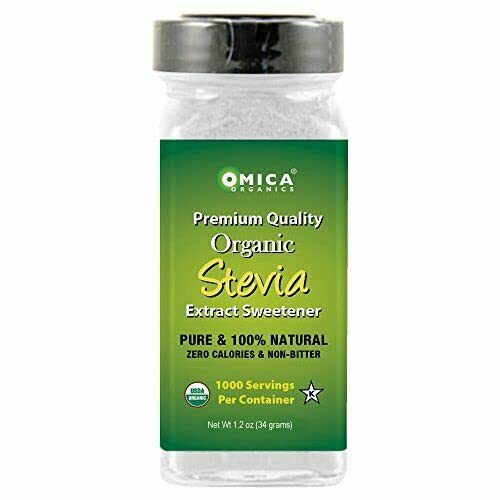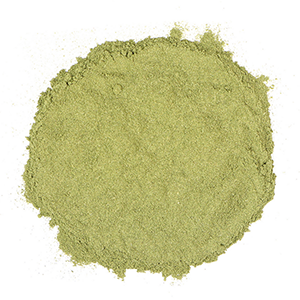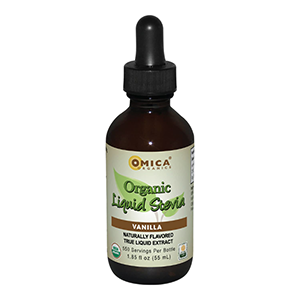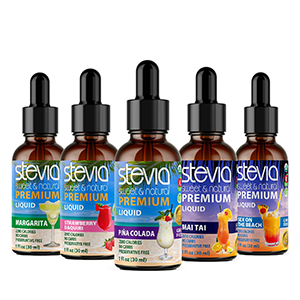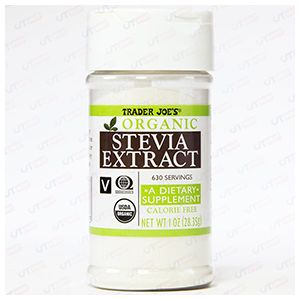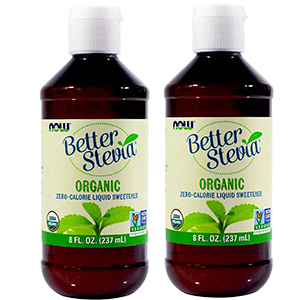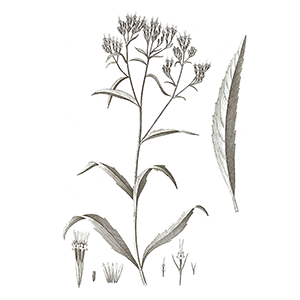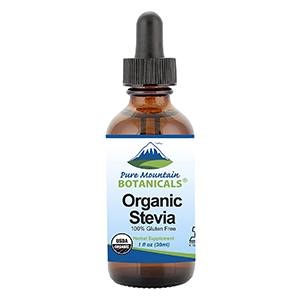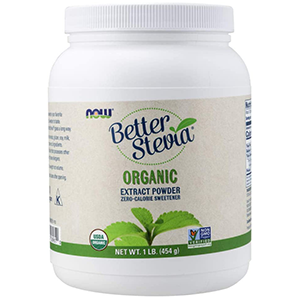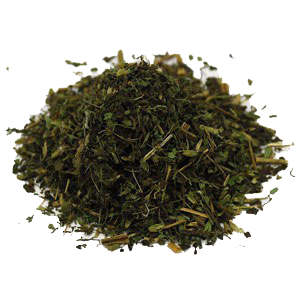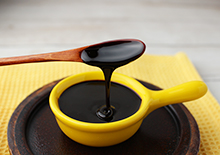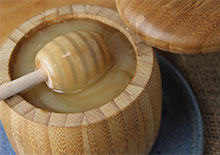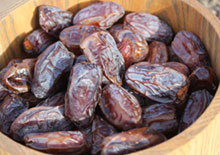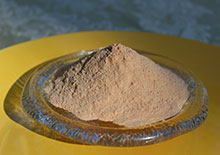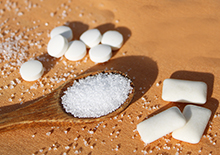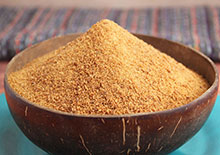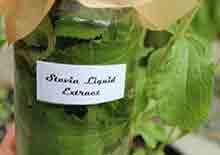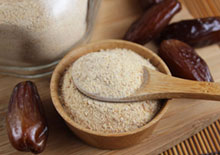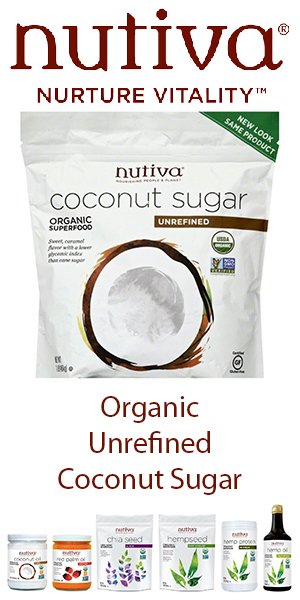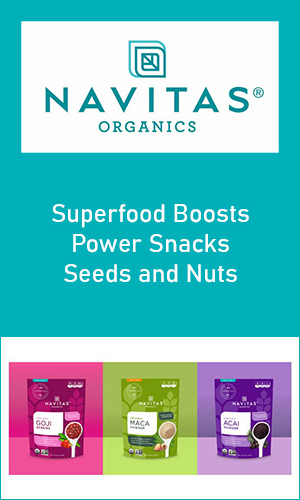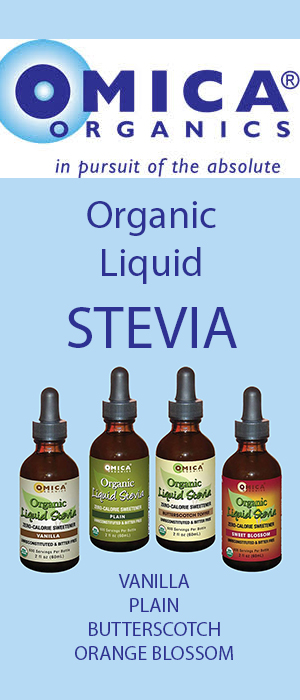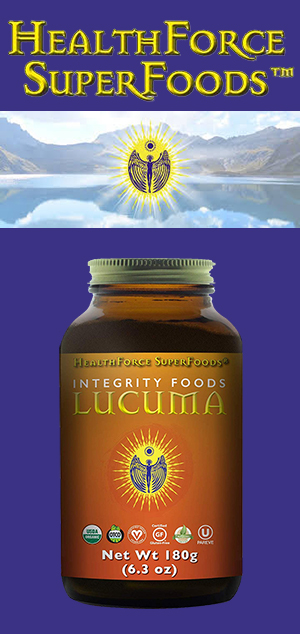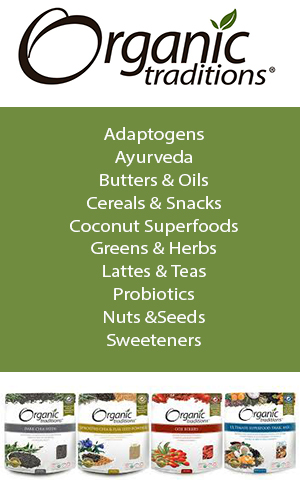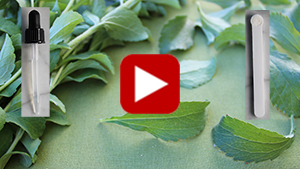- Home
- Sweeteners
- Is Stevia Healthy?
Is Stevia Healthy? The Truth About This Sugar Substitute
Is Stevia Healthy? | Best Stevia | Why It Was Banned | Side Effects | Stevia on Keto | How to Use | Precautions | Shop
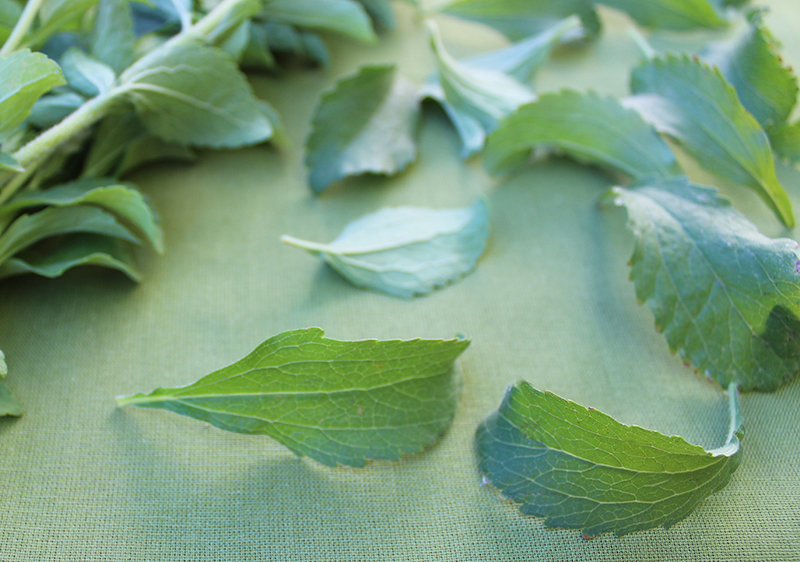
Yes, stevia sweetener is considered a healthier option, but not all stevia is created equal. We will further discuss the best stevia to use, plus why it was banned, any potential side effects and if stevia will break ketosis when following a keto diet. But first, why is stevia healthy?
Stevia (pronounced stee-vee-ah) comes from the green leaves of the plant Stevia rebaudiana.
Highly marketed as a "zero-calorie" sweetener, stevia is considered a good choice for those looking for a natural sugar substitute, replacing artificial sweeteners as well as other high-calorie sugars.
Table of Contents
Is Stevia Healthy? | Best Stevia | Why It Was Banned | Side Effects | Stevia on Keto | How to Use | Precautions | Shop
Pure stevia extracts have a very sweet taste but are sugar-free. Claims are often, technically speaking, somewhat exaggerated stating they can be 200-300 times sweeter than sugar. The point is though that stevia is very sweet. That's why it only takes a few drops or a pinch per serving.
The magic of stevia leaves is in its compounds called steviol glycosides which offer sweetness but aren't metabolized by the body like sugar or glucose. The non-sugary sweet components make extracts a valuable alternative for those with diabetes, obesity and health issues like candida overgrowth.
While you can use the straight dried leaves or green leaf powder, many find it has a strong aftertaste. So, most stevia products available are refined versions.
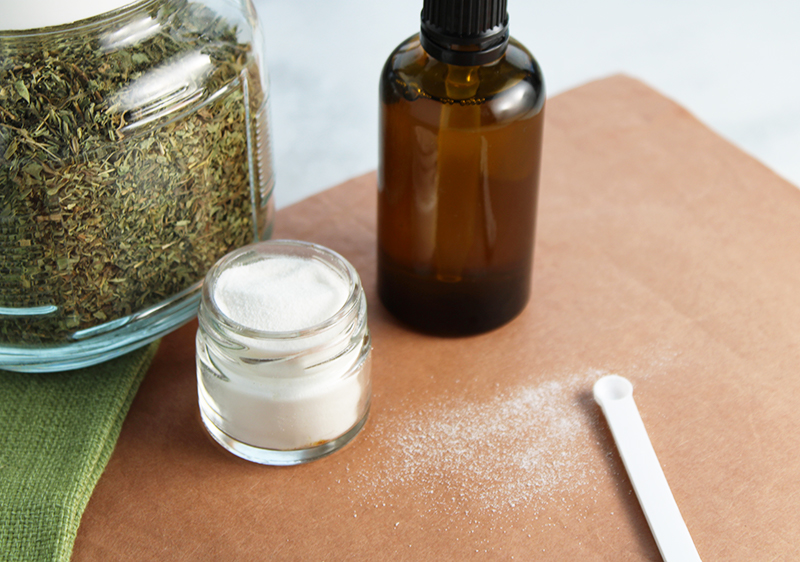
Not All Stevia Sweetener is Created Equal
Stevia extracts concentrate the more palatable and less bitter-tasting steviol glycosides primarily Rebaudioside A or Reb A, which usually make up about 95% of all high-purity products.
These come in two forms as a liquid and as a white powder. Labels may say stevia leaf extract, stevia extract, steviol glycosides or can be listed under the trade name "Rebiana". (*)
The conversion involved from stevia leaf to stevia sweetener can take a few different processing routes, however.

The best stevia extracts, in our opinion, are definitely organic varieties. Why? Not just because they don't contain pesticides, but also because certified organic can't involve the use of toxic chemical solvents, like acetonitrile, methane, hexane or ethyl acetate. These are substances commonly used in extraction techniques that can leave possible residues in the final product. (*)
Likewise, make sure your stevia product doesn't contain other sugars like maltodextrin, dextrose or cane sugar, which may cause blood sugar to rise. Stevia extracts that contain inulin can also cause digestive sensitivities such as bloating in some people.
But, still wondering... is stevia good for you, why was it banned and are there potential side effects of stevia extract?

Is Stevia Bad? Why It Was Banned
Ever since the 1970s, stevia leaf extracts have been a very popular commercial sweetener and additive in the Japanese food industry.
However, in the U.S. this sweetener has gone through a bit of a battle in the highly competitive and lucrative market of tabletop "sugar substitutes" like saccharin ("Sweet-n-Low") and aspartame ("Equal").
It was actually banned by the FDA in the 1990s, under a suspected concerted effort by business competitors who debated that further research was required to prove its safety. This was pointing fingers at a highly controversial 1968 study touting that an overdose decoction of the plant given to female rats can produce infertility. However, this result was never replicated in other research.
We recall the day when the sale of stevia was banned from all stores in the U.S. for a period of time. Eventually, largely due to public disapproval, it appeared back on the shelves as a "dietary supplement" rather than as a "natural sweetener".
In 2008, research came out in the "Journal of Endocrinology and Reproduction" disproving the initial "Kruc study", providing evidence that it does not produce toxic side effects on female reproductive functions.
Since this time, high-purity stevia glycoside extracts, with Reb A as the main component, are now "generally recognized as safe" by the FDA (*) and often labeled as "sweeteners", rather than dietary supplements.
Side Effects of Stevia
One side effect of stevia is that it has antimicrobial attributes which have been studied supportive to those with Lyme's disease.
There are no known negative side effects of stevia, aside from its diuretic properties which aren't really a problem since it's typically taken in small doses.
The standard ADI (acceptable daily intake) for steviol equivalents is 4 mg per kilogram of body weight, according to the FDA. This is roughly 12 milligrams of high-purity extract a day for every kilogram of body weight, an almost impossible amount to consume for most adults.
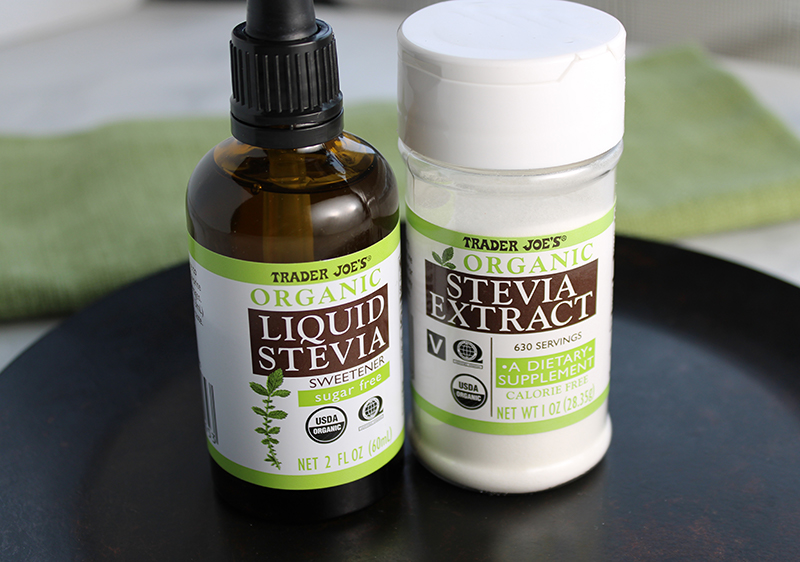
Stevia on Keto, Will Stevia Break Ketosis?
Is stevia healthy when adhering to a keto diet? Yes, pure stevia extracts are considered keto-friendly since it’s not metabolized as a sugar.
Will stevia break ketosis? The general consensus is No. It all comes down to the type of stevia you are using. Again, not all are created equal.
Stevia extracts, such as white powders or liquid forms, for the most part, won't affect blood sugar levels too much in either direction.
It is important to make sure however that your stevia product doesn't contain other sugars like maltodextrin, dextrose or cane sugar, which may cause blood sugar to rise. Frequently, individual stevia packets (not the bulk powders) often use dextrose or maltodextrin to create a "smooth-flowing consistency" as a tabletop sweetener.
Many keto diet experts also often recommend monk fruit sweetener or a blend of stevia and monk fruit. Likewise, there are other types of keto-friendly sweeteners using combinations of stevia with allulose and erythritol.
How to Use Stevia
Again, stevia products are used in smaller amounts because of their intensely sweet taste. So typically, they are taken by drops, not by the dropper full. It's important also to measure out powders as you can easily use too much in beverages or recipes.
Precautions:
Stevia is in the ragweed family, so if you have allergies, you may want to avoid it. Although current research indicates no toxic side effects from regular use, it is best to consume stevia in low doses and not overdo intake. Seek the advice of your healthcare advisor if diabetic, have other serious medical conditions or are taking any medications.
Shop Related Products (About Affiliates & Amazon Associate Paid Links)
Affiliate Disclaimer: This section contains affiliate product links. If you make a purchase through our recommended links, we receive a small commission at no additional cost to you. Thanks for the support.

